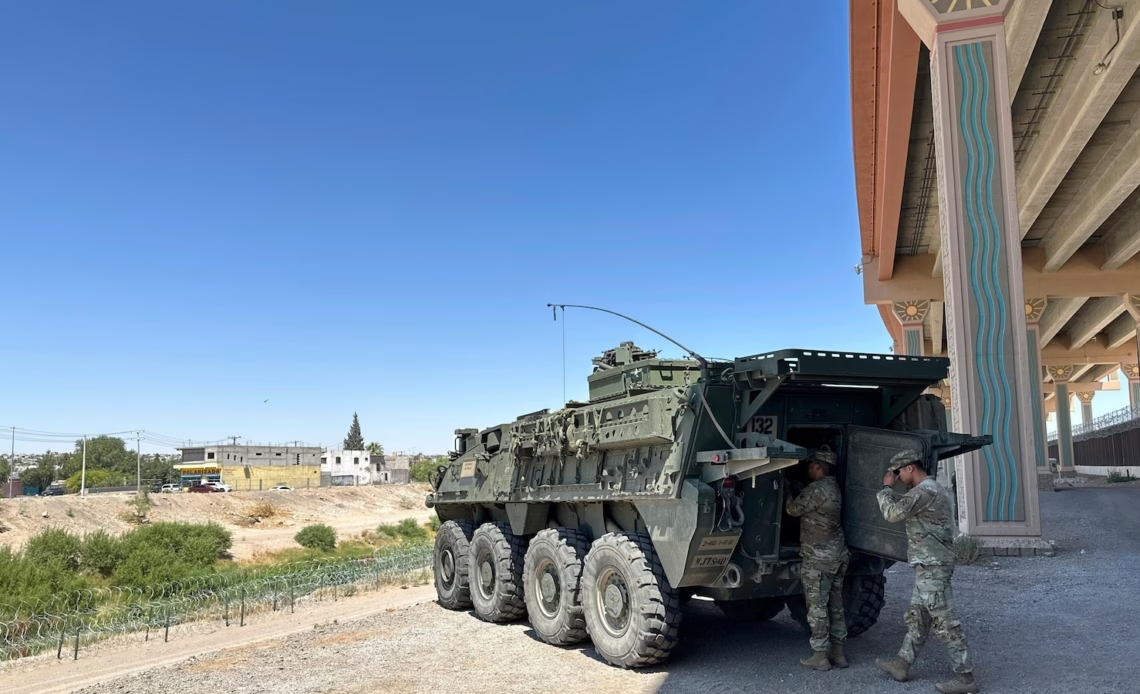COLUMBUS, N.M. — The military is expanding its authority and reach along swaths of the southern U.S. border where troops have been empowered to detain people who enter the country illegally.
Designated militarized zones will soon cover nearly one-third of the U.S. border with Mexico under supervision of nearby military bases. Federal prosecutors have filed criminal trespassing charges in the militarized terrain against more than 1,400 people, adding to possible consequences for people who cross the border illegally.
Reaction to the military buffer has been mixed among residents of New Mexico’s rural Luna County, where a strong culture of individual liberty is tempered by the desire to tame networks that ferry migrants and contraband across the border.
Some farmers and ranchers have welcomed the military’s expanded mission. But the changes also are being challenged in court and questioned by civil rights advocates and outdoor enthusiasts including hunters and hikers who fear they’ll be locked out of public lands.
The first two militarized zones, introduced in April and May, extend along 230 miles (370 kilometers) of border. The buffer runs from Fort Hancock, Texas, through El Paso and westward past factories and cattle yards to partially encircle the New Mexico border village of Columbus, where in 1916 Mexican revolutionary forces led by Pancho Villa crossed into the U.S. in a deadly predawn raid.
The Army has posted thousands of no-entry signs across the region, declaring a “restricted area by authority of the commander.”
James Johnson, a fourth-generation local farmer, oversees the summer harvests on private farmland along 5 miles (8 kilometers) of the border.
He says the military deployments under prior presidents put “eyes and ears” on the border and that the new approach is “trying to give some teeth” to enforcement.
Luna County Commissioner Ray Trejo says he and other hunters are worried about their rights to carry firearms and harvest game from the newly designated militarized zones. He sees the new trespassing charges as inhumane in an economy built on immigrant farm labor.
“People are coming into our country to work, stepping now all of a sudden into a military zone, and they have no idea,” he said.
Abbey Carpenter leads a search-and-rescue group for missing migrants and says public access is being denied across sweltering stretches of desert where migrant deaths have surged.
“Maybe there are more deaths, but we don’t know,” she…
Click Here to Read the Full Original Article at ABC News: US…

